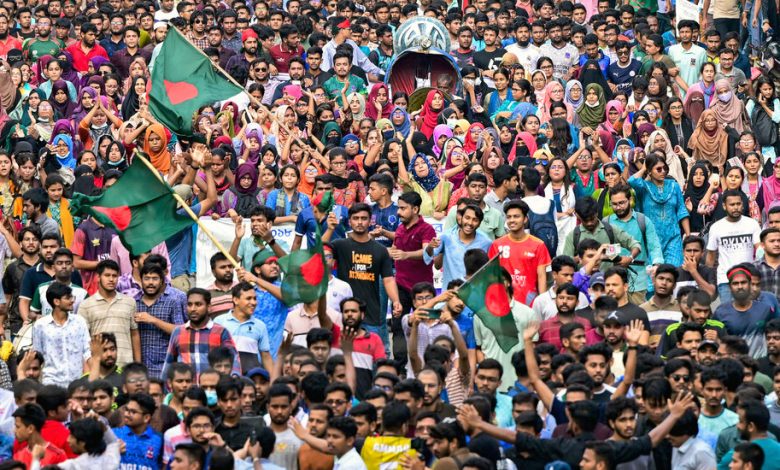Behind Bangladesh Protests, Rage Over Inequality

The video, taken this month, shows a Bangladeshi protester wearing a black T-shirt and standing on one side of an empty street. His arms are outstretched, and he is holding a stick in one hand.
Across the street stand several policemen, wearing bulletproof vests and helmets and pointing their guns at him. He does not move, daring the policemen to shoot.
They begin to fire.
As Bangladesh reels from one of its worst bouts of violence since it gained independence in 1971, the video — verified by the news agency Storyful and carried by multiple television channels in Bangladesh — has come to symbolize the helplessness and defiance of student protesters who have demanded the reform of a system of preferential treatment for coveted government jobs.
Late on Friday, the government of Prime Minister Sheikh Hasina declared a nationwide curfew and brought the army in to quell the protests. By then, the internet had already been switched off. The brutal crackdown that began last week has drawn condemnation from human rights groups and left members of the extensive Bangladeshi diaspora heartbroken as they frantically try to contact their families. On Saturday alone, the police reported that 12 people had died.
“When I pray, I can’t stop my crying,” said Silvia, 36, a Bangladeshi immigrant in New York who requested to be identified by only her first name out of concern for the safety of her family back home. “When police are killing my brothers and sisters, there is nothing called democracy right now in my country.”